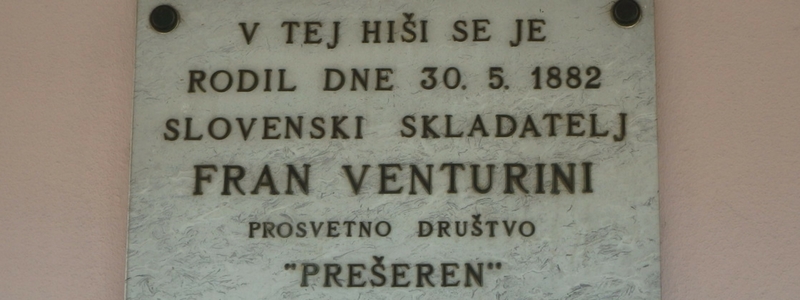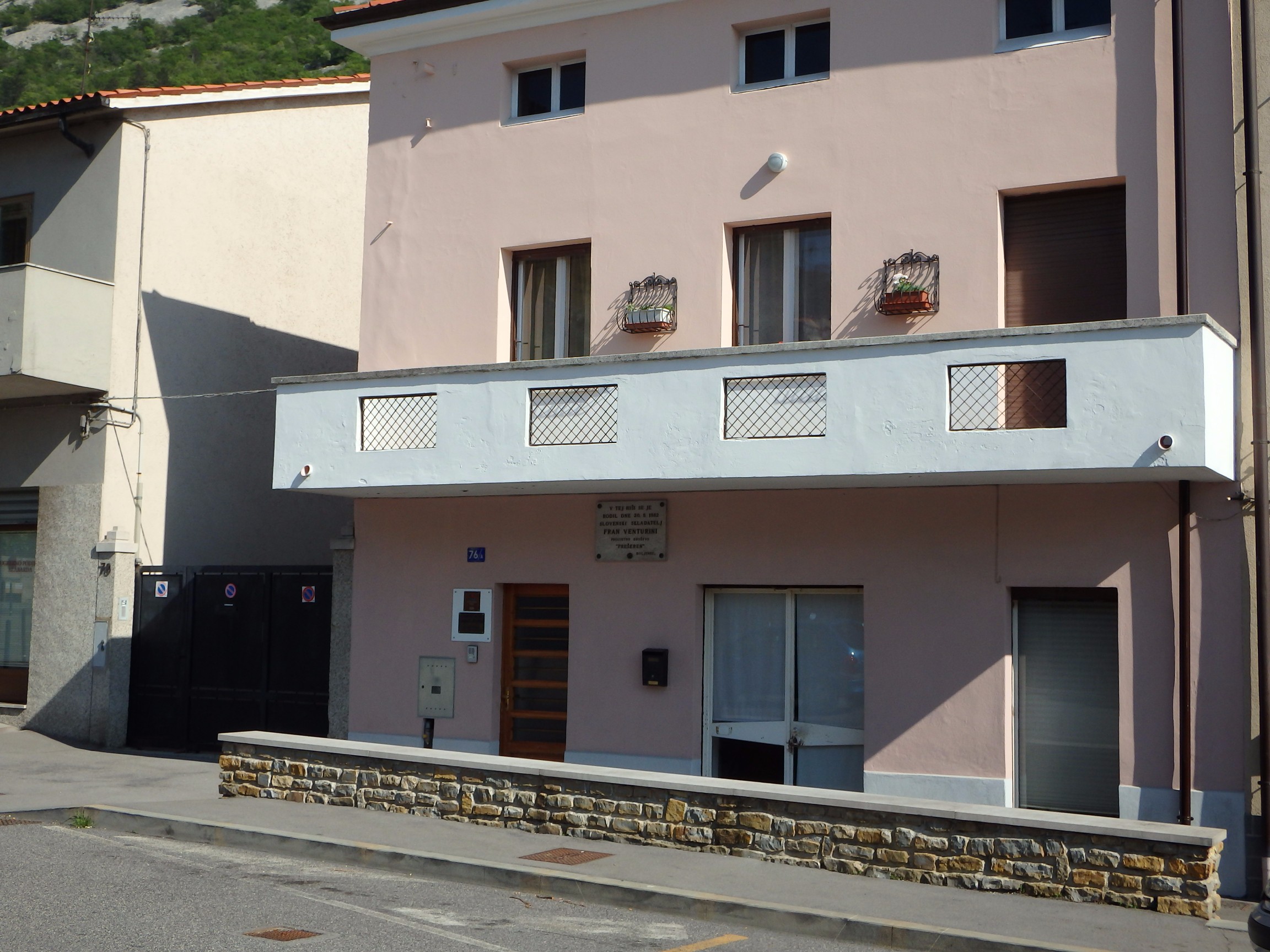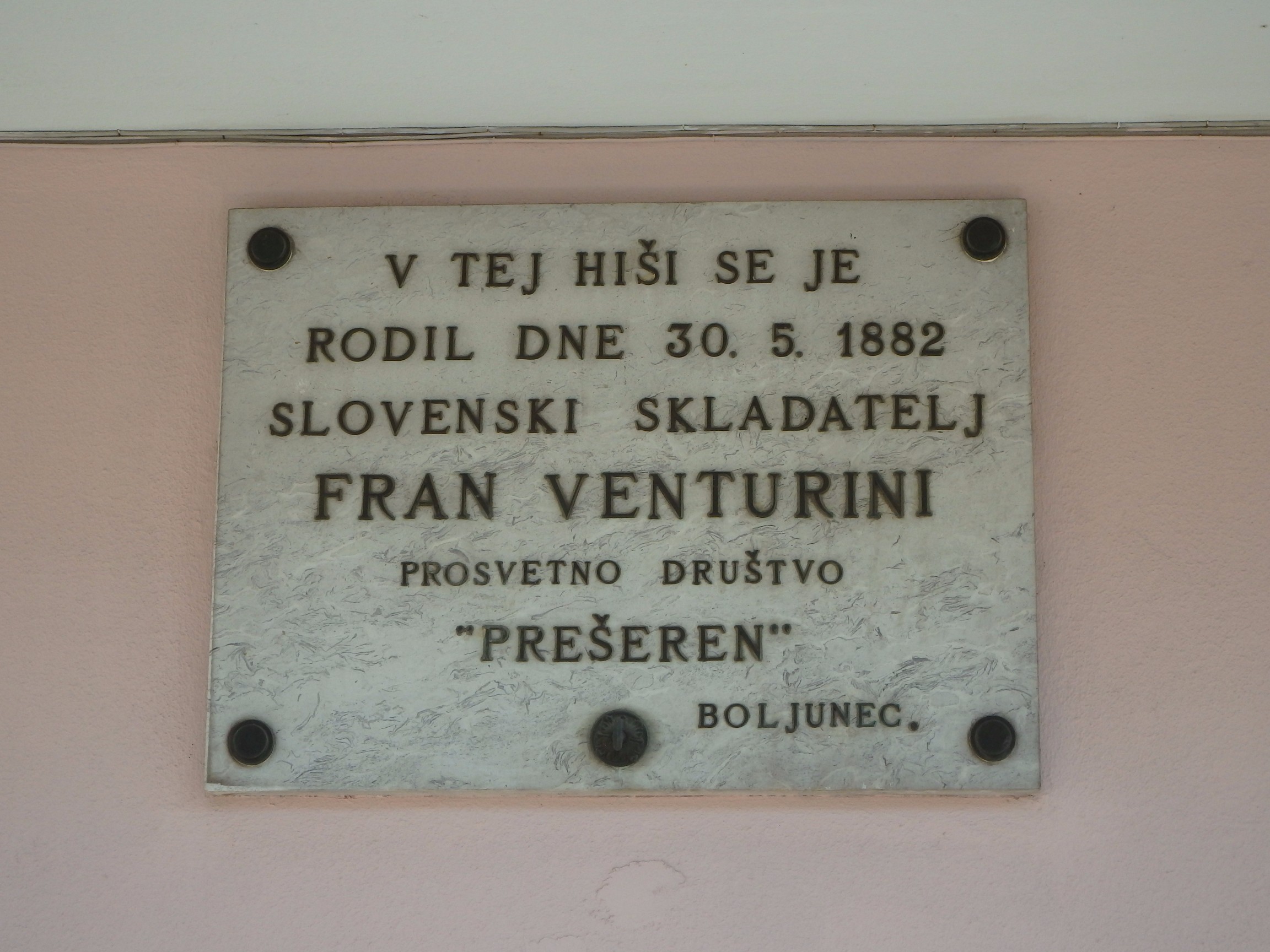In 1966, Venturini’s mortal remains were moved to his native village, Boljunec (Bagnoli della Rosandra). The Prešeren Cultural Society had a memorial plaque attached to his birthplace, bearing the inscription, “Slovenian composer Fran Venturini was born in this house on 30 May 1882. ‘Prešeren’ Cultural Society Boljunec.”
Fran Venturini
A self-taught musician, Fran Venturini (1882–1952) devoted most of his life to composing music and conducting choirs, and had an important role in the development of national identity in Trieste and Ljubljana by promoting singing in Slovenian. He worked as a teacher on the outskirts of Trieste and at the Sv. Jakob (San Giacomo) School in Trieste, i.e. in Dolina (San Dorligo della Valle), where he also served as a mayor. He achieved distinction as a talented self-taught composer of secular and church choral songs, some of which surpassed the limited performing abilities of his immediate environment.
Music was Venturini’s passion from childhood. As a secondary-school student, he conducted the student choir and orchestra of the Koper Teacher Training College. On his initiative, the France Prešeren Reading and Choral Society was established in his hometown in 1901, and Venturini served as the choir’s conductor for several years. He played a prominent role in establishing and leading choirs in Breg, which performed under his baton and whose repertoires included Venturini’s compositions. He taught courses for choirmasters and organists organised by the Glasbena matica Society and Choral Association in the Province of Trieste. In Trieste after WWI, he conducted the Balkan Society Choir and the Kolo pri Sv. Jakobu Choir.
Political pressures compelled Venturini and his family to move to Ljubljana, where he worked as a clerk, and also dedicated his time to conducting choirs. He was choirmaster of the Slavec Choir and the Sava Railway Choir. He established a choir within the context of the Tabor Society and became conductor of the Hubadova župa Choral Association.
Although interned during WWII, this did not interrupt his musical activities. During this period, he harmonised several partisan melodies and continued to compose. After the war, he was given the honour of conducting Slovenian massed choirs. Upon his return to Trieste, Venturini became president of the reinstated Glasbena matica Society in Trieste and later a music official of the Slovenian-Croatian Cultural Association. During the last years of his life he devoted himself entirely to reinvigorating the musical life of Trieste and its outskirts.
Venturini’s output mostly comprises choral works, including Slovenian masses, youth choral pieces and children’s songs Koliko je zvezd, Polžek in krojači and Kukavica (All Those Stars, A Snail and the Tailors, A Cuckoo).
Maia Juvanc


